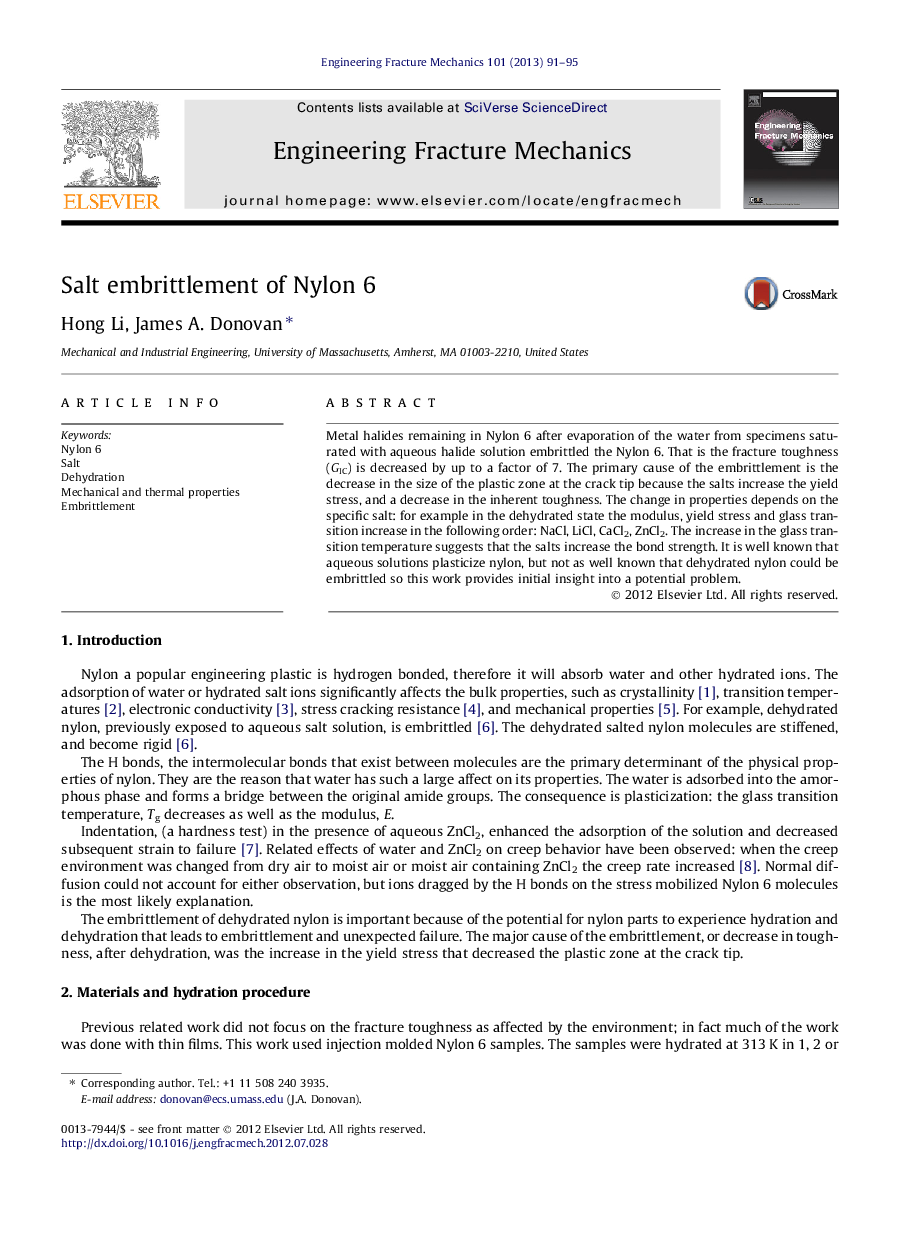| Article ID | Journal | Published Year | Pages | File Type |
|---|---|---|---|---|
| 775005 | Engineering Fracture Mechanics | 2013 | 5 Pages |
Metal halides remaining in Nylon 6 after evaporation of the water from specimens saturated with aqueous halide solution embrittled the Nylon 6. That is the fracture toughness (GIC) is decreased by up to a factor of 7. The primary cause of the embrittlement is the decrease in the size of the plastic zone at the crack tip because the salts increase the yield stress, and a decrease in the inherent toughness. The change in properties depends on the specific salt: for example in the dehydrated state the modulus, yield stress and glass transition increase in the following order: NaCl, LiCl, CaCl2, ZnCl2. The increase in the glass transition temperature suggests that the salts increase the bond strength. It is well known that aqueous solutions plasticize nylon, but not as well known that dehydrated nylon could be embrittled so this work provides initial insight into a potential problem.
► Hydrating Nylon with aqueous salt solutions plasticizes them. ► Dehydrating Nylon previously hydrated with aqueous salt solution decreases its fracture toughness-embitterment. ► The decrease in toughness is mostly due to the increase in yield stress caused by the salt.
